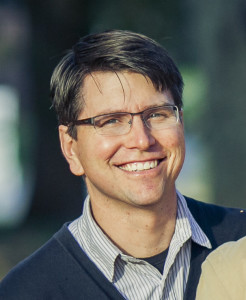
What single concept or skill do you feel is most important for your students to learn, and what is your approach to teaching it?
Most of my students are undergraduates, and I think it’s critical that they learn to identify their intended audience before they start writing. I do think that’s a skill—it requires focused attention and practice before it becomes second nature. By the time students get to my class, in terms of their education, they can write impressive academic and personal essays. I want them to parlay those skills to produce sharp copy about the people, processes, and findings that drive scientific progress.
I take the same approach to teaching that skill that I do to almost every skill in class: Read a lot, talk about the reading, and write a lot. I ask my students to identify the target audience when we read abstracts, papers, press releases, and articles, or listen to podcasts. Is this written for a general audience? Scientists? College students? Millennials? We discuss how we could change an article to make it more appropriate for a different audience. (“Imagine this were an article for middle-schoolers. How would you start it?” is a reliable prompt. I find writing for children to be almost more challenging than writing for adults.) In the past, I’ve used in-class exercises that require students to rewrite a news lede for a different audience.
I also ask them to read some of their work to their parents or siblings, or their science-phobic friends, or anyone who will listen, as a way to ensure that they’re communicating clearly. I suspect that the mental process involved with identifying your audience leads naturally to other important skills, like explaining jargon or choosing which information and quotations to include in an article.
What specific skills-related experiences outside the classroom do you think are most important for students to have in their training?
I want them to be surprised, and I want them to struggle. I think surprise—and the ability to be surprised—is critical to writing about science. Their job as science writers is to find out new things and write about those things, and the only way to discover new things is to go where you haven’t been before. I don’t want them to write to impress me; I want them to write to clearly and concisely report on something interesting going on in the world.
The struggle is also key. I want them to know the dread that comes with an approaching deadline—and the satisfaction of making that deadline. I also want them to struggle with finding appropriate and available sources. Every semester, I get a slew of panicked emails in the night or two before the first interview assignment is due because they can’t find an appropriate source. (500-word Q&A with a scientist, in person or by phone.) Almost invariably, someone comes through, just like it happens in real life, and their excitement is palpable.
What have you learned in your own career that you most hope to convey to your students?
Solid, clean copy doesn’t happen by accident, and the act of revision is a deliberate and necessary step in that process. It can be discouraging to learn that your golden first draft isn’t so golden, so I hope to teach them that writing, like science, is a dynamic process.
What textbooks and other reading do you use in your teaching?
I require three books: The Best American Science and Nature Writing, Ideas into Words, and The Science Writers’ Handbook. The first gives us rich source material. We read, discuss, dissect, and sometimes emulate the tools that we identify in those stories and essays. The second, which I read during my own graduate program, delivers smart writing advice applicable in a variety of settings, not just science writing. (Students have told me that they think Ideas into Words has helped them write in other classes, as well.) The third gives students an excellent guide for putting skills to practice in the real world. I did contribute two chapters to the handbook, but I don’t assign those.
What resources do you wish were more readily available for students?
My students have access to almost every study they would need to consult—a luxury most science writers lack—as well as researchers in the university community willing to share their work. At the same time, Nashville doesn’t have many opportunities outside the universities for field interviews or visits, and getting outside the bubble, I think, would give them a wider perspective and more story ideas.
What is a science story that you admire, and why?
I’m going to cheat and mention two. First is “The Rock that Fell to Earth,” which ran in Nature a few years ago and was written by Roberta Kwok when she was an intern. [Editors’ note: TON ran a Q&A with Kwok about this story in October 2010.] She won the Walter Sullivan Award from the American Geophysical Union for the story. It’s a great example of how to balance extensive background reporting with quotes and scenes, and the subject matter just melts into the telling. Another story I like to share with my students is “The Mystery of the Canadian Whiskey Fungus,” by Adam Rogers in Wired. [Editors’ note: TON ran a Q&A with Rogers about this story in October 2011.] It’s about a mold detective and fermentation and booze, and it goes down very smoothly.


